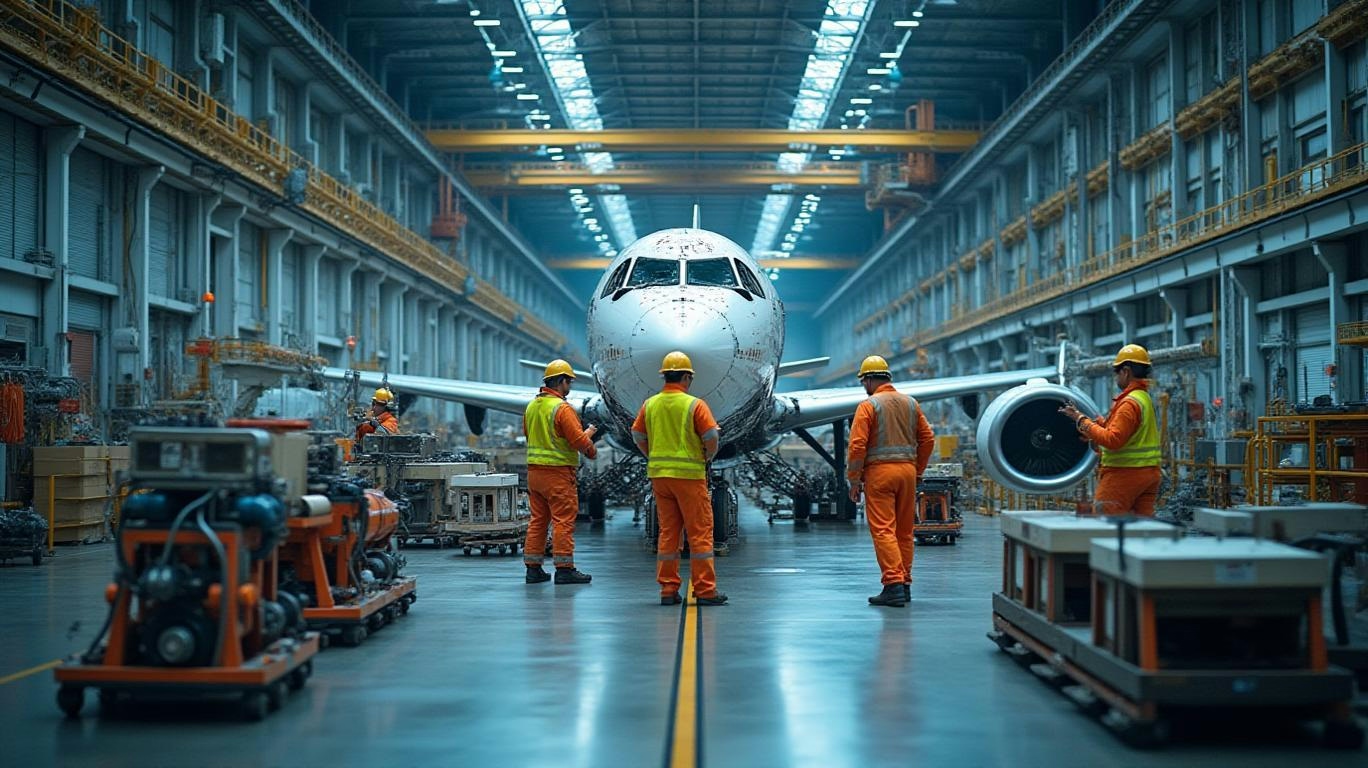AeroGenie — Ihr intelligenter Copilot.
Trends
Categories
Airbus Considers New Aircraft Amid Ongoing Supply Chain Challenges

Airbus Considers New Aircraft Amid Ongoing Supply Chain Challenges
Evaluating Expansion Amid Production Pressures
Airbus is contemplating the addition of a new aircraft model, the A360, to its existing portfolio, even as it continues to manage significant production pressures surrounding its highly demanded A320neo. This consideration arises amid persistent supply chain disruptions that have plagued the aerospace industry, with analysts such as BOC Aviation projecting these challenges to persist through the end of the decade. The sector remains under strain as manufacturers strive to meet rising airline demand while contending with complex logistical and manufacturing hurdles.
The market response to Airbus’s potential expansion has been mixed. Some industry observers highlight a gradual return to more predictable delivery schedules from both Airbus and its main competitor, Boeing. However, others caution that the success of any new aircraft program will depend heavily on the industry’s capacity to effectively manage intricate supply chains, maintain precision tooling, and uphold stringent quality control standards. Delivery delays continue to be widespread, as airlines seek to modernize their fleets in response to surging travel demand.
The Critical Role of Precision Tooling and Supply Chain Management
David Martin, managing director at aerospace tooling supplier Heamar, emphasizes the significant challenges that accompany Airbus’s ambitions. He notes that introducing additional aircraft models will likely exacerbate existing production delays and intensify supply chain pressures already felt across the aerospace manufacturing sector. Martin highlights the increasing complexity of scaling production while maintaining the high standards required in aircraft manufacturing, especially given the substantial backlogs with little immediate prospect of resolution.
Precision tooling plays a pivotal role in this context. According to Martin, such tooling is essential for ensuring safety, minimizing human error, and guaranteeing the reliability of each aircraft by accurately positioning parts during assembly. In an environment where even minor misalignments can have serious consequences, the use of specialist tools becomes indispensable, particularly as manufacturers seek to increase output. Without appropriate tooling, higher production rates risk generating more rework, further delays, and potential safety compliance issues, which could ultimately undermine expansion efforts.
Shifting Market Dynamics and Strategic Considerations
The broader aerospace landscape is undergoing notable shifts. Boeing is reportedly negotiating a potential deal for 500 aircraft with China, a development that could significantly reshape market dynamics and heighten competition. Meanwhile, supply chain challenges extend beyond commercial aviation, affecting the defense sector as well and prompting manufacturers to reevaluate their strategic approaches.
For Airbus, advancing its product lineup will require substantial investment in advanced tooling technologies and enhanced supply chain resilience. Martin stresses that aircraft components must be manufactured with exact adherence to original specifications to avoid downstream issues. Precision tools standardize assembly processes and ensure consistent achievement of required tolerances, which is critical for maintaining safety and quality.
As Airbus deliberates its next steps, the company faces a complex balancing act: expanding its offerings to meet airline demand while navigating a volatile supply environment and intensifying global competition. The viability of any new aircraft program will ultimately depend on the industry’s ability to deliver reliably and safely amid ongoing challenges.

Capital A Completes Sale of Aviation Business to AirAsia X

Four Gateway Towns to Lake Clark National Park

PRM Assist Secures €500,000 in Funding

Should Travelers Pay More for Human Support When Plans Go Wrong?

InterGlobe Aviation Shares Rise 4.3% Following January Portfolio Rebalancing

Key Market Segments Shaping Airline Route Profitability Software

Locatory.com Gains Traction Among Aviation MROs and Suppliers

JetBlue Flight Makes Emergency Landing Following Engine Failure

58 Pilots Graduate from Ethiopian University

The Engine Behind Boeing’s Latest Widebody Aircraft
